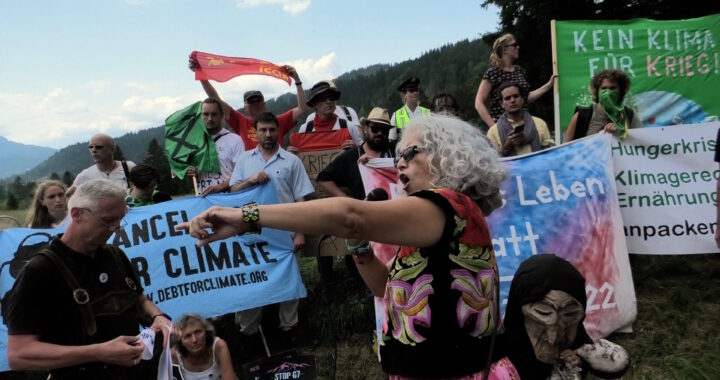photo: Bettina Cruz Velazquez (CNI, Asamblea de Pueblo des Istmo) with the "internationalist caravan for global justice and to mobilize against the G7 summit" at a rally at Schloss Elmau during the G7 summit: "I belong to an indigenous people from the south of Mexico, and we are here because we want to tell the G7 that they are not the masters of the world, but that they consider themselves the masters of the world because they have come here to decide our future!"
SOWING IN FIRE
by Stella AC susanne fasbender
In this film, we demand the impossible and we look towards the end of violence. We explore seeds that defy fire. The essayistic film negates the hegemony of answers that naturalize the genocide-ecocide nexus in the history of capitalist modernity.
It questions the concept of the "West" as a productively created system of categories such as "Western" and "non-Western" (Stuart Hall), which made it possible to "characterise" and "classify" societies and make them "comparable" with one another for the benefit of western dominance. How did the epistemic implementation of distinctions and racialisations within human society come about? How did the powerful opposites: civilised / primitive, developed / underdeveloped, rational / irrational, worth living for / worth killing for become politically effective, while the violent processes that led to their emergence became invisible? What do Eurocentric hegemonies of knowledge mean and how have they become inscribed in "Western" social consciousness? How can we today break up the militarisation postulated as constraints, the borders, walls, wars and destruction of nature, „which has come to confront us as a global human species collectively living with, through, and against the West’s incorporating expansion." (Katherine Mc Mittrick in „Sylvia Wynter - On Being Human as Praxis“) in order to sow a new seed in this rupture?
The lecture "BRANDSPUREN - Epilog zur Unterscheidung - Von der eurozentrischen Aneignungslogik zur Entuferung des Weltenbrandes" on this page (only in German) is also an in-depth description of the content of the film as part of my basic research.
At the same time, the end of violence is present within us - in the midst of barbarism, genocide, the destruction of nature and the apocalypse. To borrow Karl Marx's phrase, it is "the dream" that already contains the reality for which we lack the consciousness - or the possibilities, physical power and agency to make this reality into the world in order to renew it. In this way, the often lamented dispute about how we should fight, think and orientate ourselves is also understood as a productive force of movement, as a constant of new beginnings in a permanent, unfinished confrontation with the contradictions in the world. We meet in recognition of all our differences, but with the common goal of renewing the world from below.
A visit to documenta 15 (among others) provided a fruitful way of asking the above-mentioned questions and becomes a site of controversy about the relationship between anti-Semitism and anti-colonialism. This also includes questioning the current German "ban" on addressing the history of the expulsion of Palestinians since the beginning of Zionism or viewing and discussing their art at documenta15.
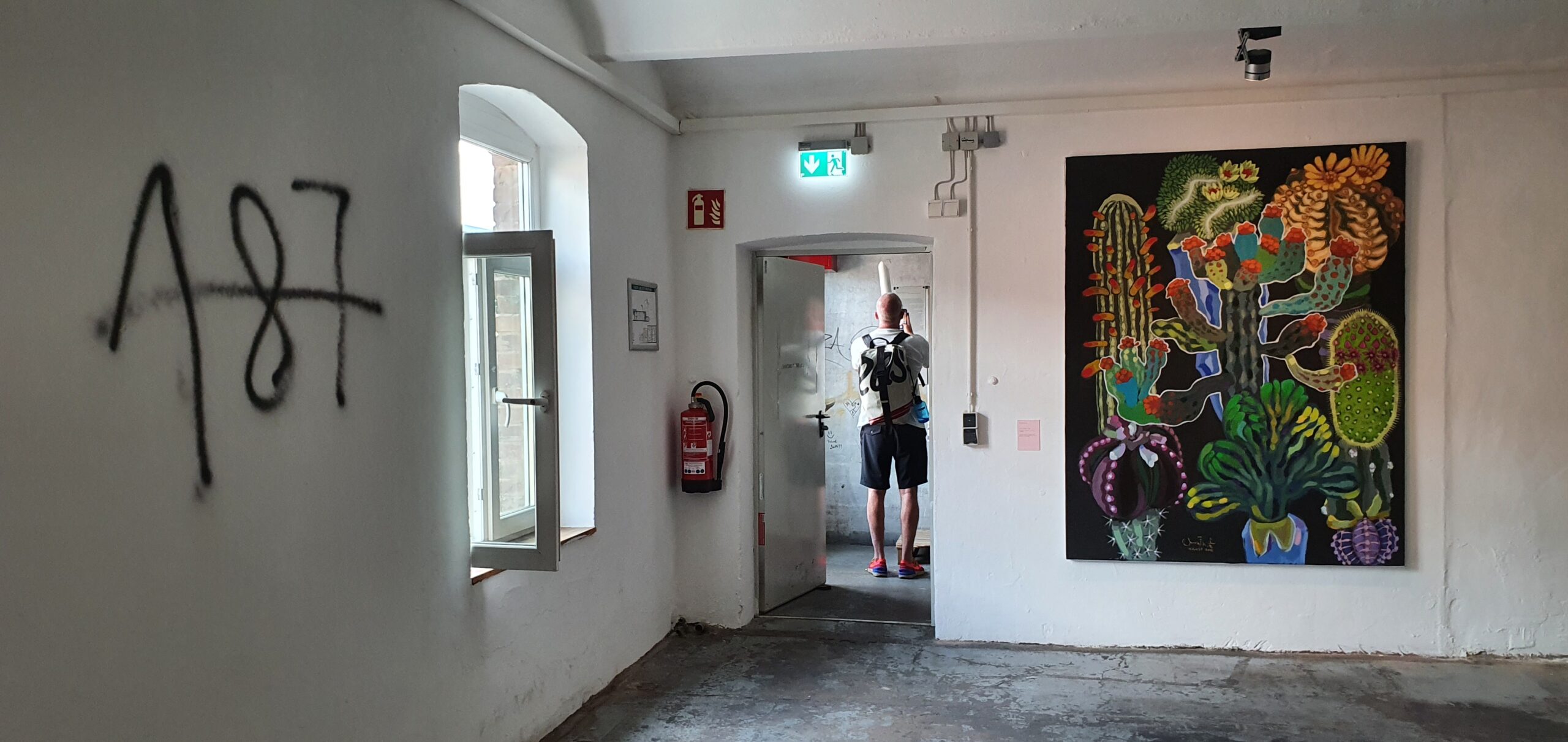
The death threat (187-you will be the next) against the invited Palestinian artist group "The Question of Funding" sprayed by unknown persons in the exhibition space before the opening of documenta 15 in 2022 was played down as " smearing" and was neither scandalised nor removed under the eyes of an engaged press during the entire exhibition. Instead, this attack was linked to an unanimous judgement that categorised the Palestinian exhibition as "anti-Semitic" even before it opened. I saw German tourists walking round the exhibition with a disdainful sneer - "good Germans" who know that they are always on the "right" side.
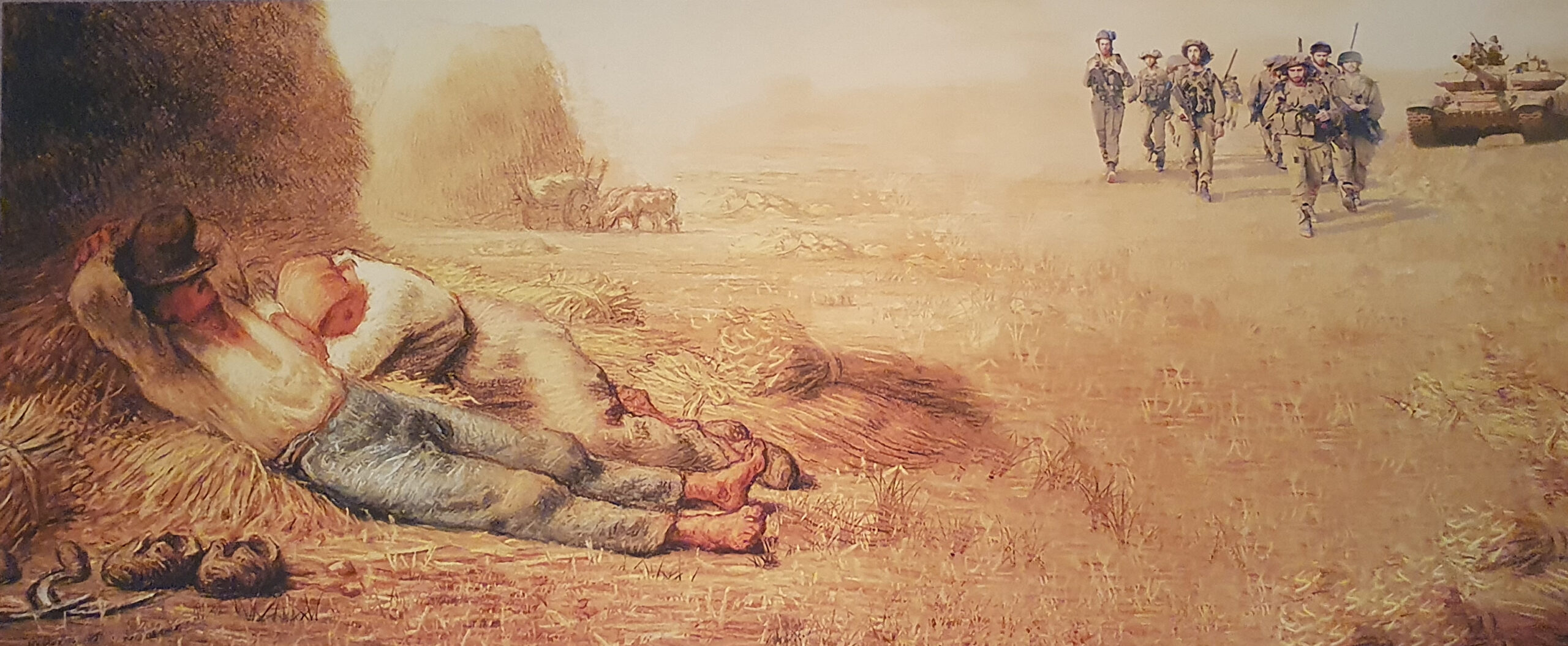
The "Gaza Guernica" series by artist Mohammad Al Hawajri uses montages with excerpts from European realism, such as "Break from Work" by Jean-Christophe Millet, to depict acts of sudden expulsion of peasant life that had already befallen villagers in Palestine decades before the Nakba. By juxtaposing classic works of European art history with images of the Israeli military, he points to the deep roots of the Middle East conflict in European history. Historically significant here is the Sykes-Picot Agreement of 1916, in which the governments of Great Britain and France divided the Arab provinces of the former Ottoman Empire into four permanent zones of influence.
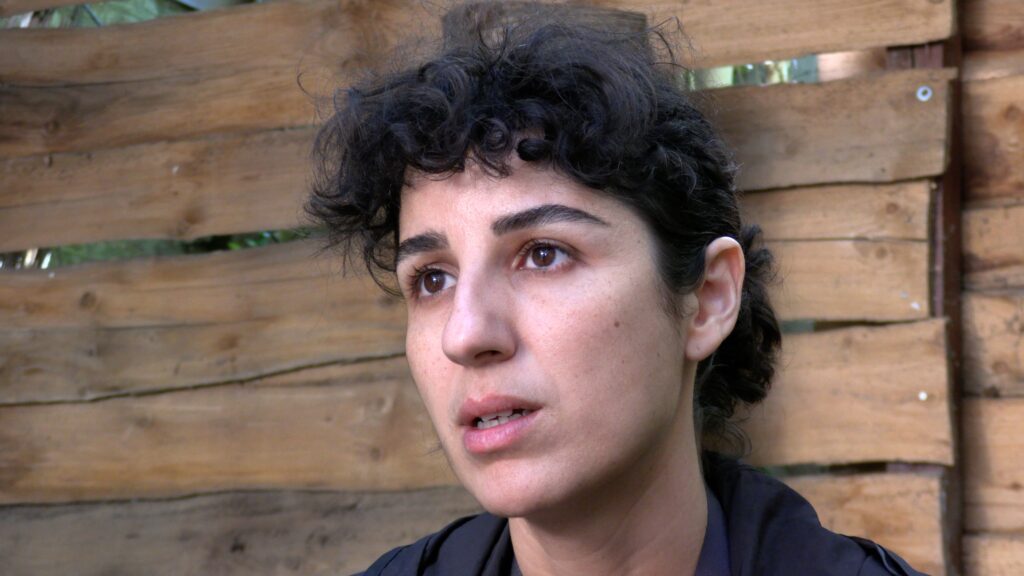
LE 18 is a cultural and residency space established by Lina Haida in 2013 and located in the medina of Marrakech, and was invited to documenta 15. Laila Hida talks about the questions that arose by translating their space into a representation at documenta in Kassel. They started with a talk: Undoing documenta. "We wanted to open the conversation with the community in Kassel on what is documenta, how we understand it, how do people understand it, what is expected from collectives and projects from the global south, that are invited to be here. And so in the course of all this conversation that we had in the past months, we understood that we were going the wrong way, when we're just answering to an invitation from an understanding that was somehow a colonized understanding of what is documenta, what is an exhibition, or what is an art manifestation. So to say, that we are still unequal in this world and that we don't work as artists in the same conditions. And it's still problematic to show works from global south, in this context because they're not understood properly. So you don't want to be a Token in this context. But I believe in general, it's becoming more and more complex to come and exhibit and show in Western countries, because till now we are not having equal conversations and equal rights. We can just talk about a basic right of mobility. We are now having the talk, and at the same time, we're getting phone calls from one of our team member who didn't get his visa yet. We are not sure he's getting it. He was supposed to be here tomorrow. And so we are dealing at the same time with these kind of things."
The film is created with a multitude of voices of thinkers and fighters, warriors, researchers, teachers, writers in conversation and in their speeches, who dedicate (have dedicated) their work and their lives to a present in which the seeds of a practice and possible world liberated from the ecocide/genocide complex, from Eurocentric hegemonies of knowledge and thought, are also the seeds and the power of their daily lives. The encounters, recordings and interviews took place over several years in different places and independently of each other. While these people may have disputable differences in their ideas, judgements, theories and approaches that the author may not be aware of, this should be pointed out, and yet the common link will always be found in taking the end of violence as the starting point.
Activists and researchers of anti-colonial struggles here and there, women of the Kurdish autonomy movement, indigenous feminists from Abya Yala (South America), the Argentinian feminist movement Ni Una Menos, Voices from the Palestinian protests in Germany and Palestine Solidarity, from the resistance against Tren Maya in Chiapas/Mexico, protests in Afghanistan, Sudan, Nigeria, Namibia and Germany, as well as interviews with artists from Haiti, the Congo and Morocco address struggles and reports on political violence. The large number of countries listed here is less intended to cause confusion than to illustrate the historically fixed line - patriarchy, expansionism and capitalism - that forms the barrier in these struggles across distances.
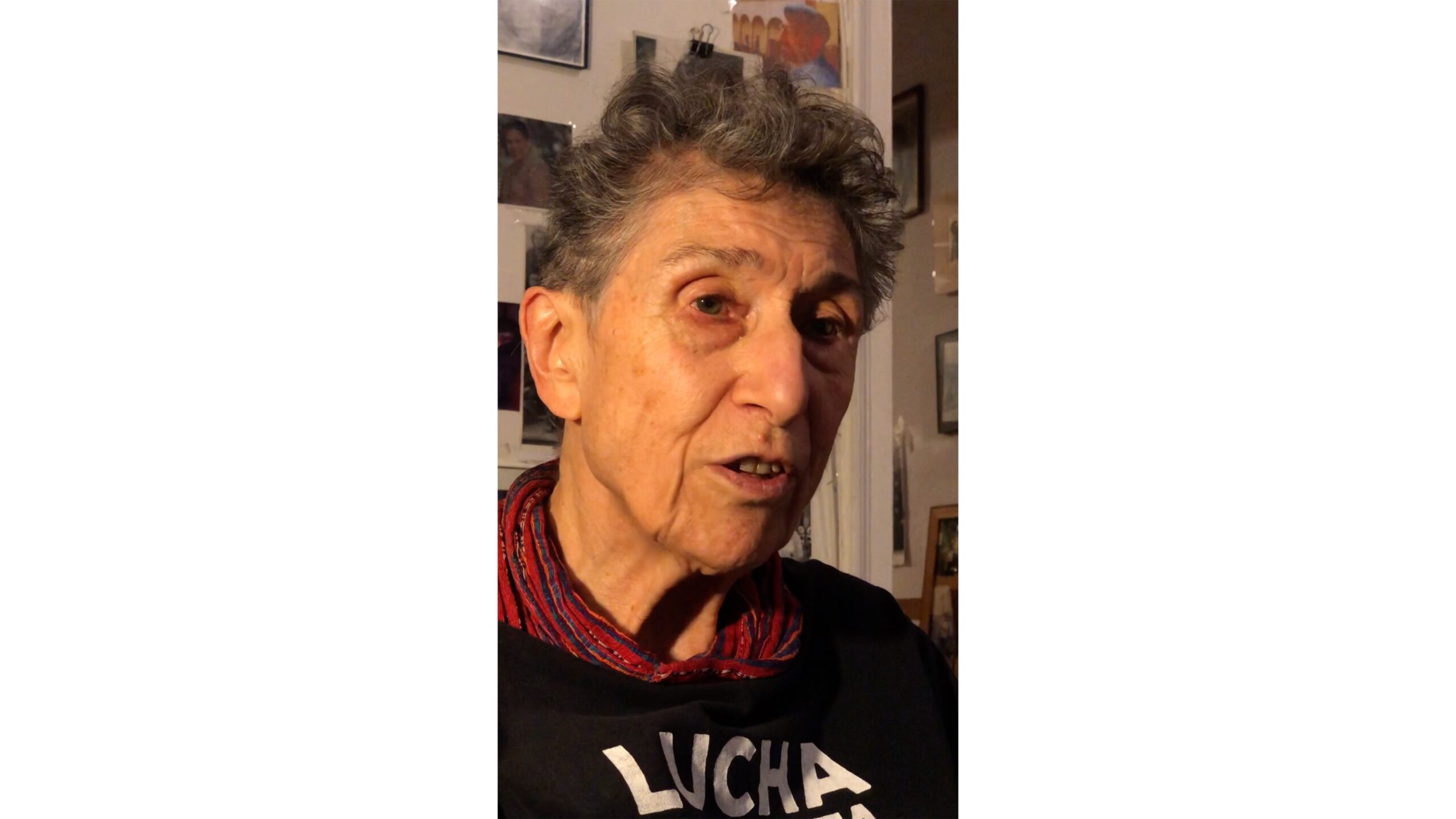
Silvia Federici: "Communalism is a day-to-day condition. Without communal solidarity, without forms of communal infrastructure, we are not going to be able even to make a real fight. To have a real fight you really have to have that kind of solidarity that puts our lives in common - in a concrete daily way - in terms of of actually seeing that, when we think of our reproduction, of our life, we are thinking not in individual terms. This to me is extremely important. The commons as a condition for the struggle. It's the only way the struggles can actually grow and not just be episodic: One great moment, everybody in the street and then everybody goes home. But actually - build an infrastructure for struggle. Really producing labor power, really producing the capacity to work, therefore we need to reproduce the capacity to struggle. So this is what we have to strengthen."
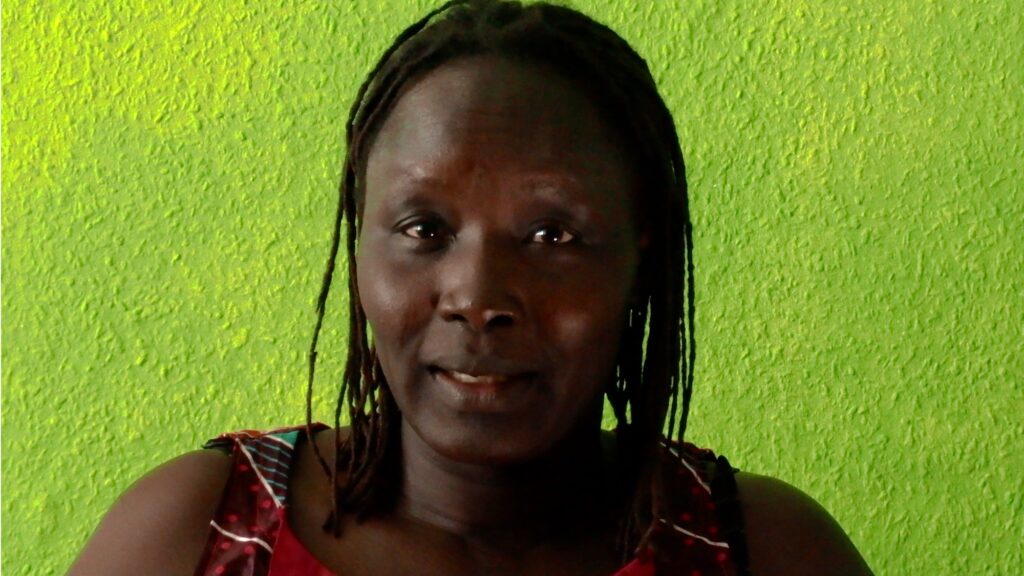
Napuli Paul: "If you are in the Box, you have only 90 degree. But if you look around then you have 180 degree. As you are going further, then you complete, you know, 360 degree, which we all don't have... ... We are producing divisions by ourselves and for the government therefore the main target will win, because we are fighting against ourselves. It's about: Open your heart. So for me, I do not fight for having an enemy, but I fight for coming together and to realize this world is ours. We should care for one another. If we have respect, it's the big thing. Respect either as an individual or as a group. Don't judge. Because some people can say you are, you know, fighting individually, but we, we are in a group. We are the best. And then, you know, if you receive that energy, then you question yourself. If we respect ourselves, you respect the fight of people. But if you don't have respect. We don't open our hearts."
And it is also the extra-human creatures of plants, grasses and animals, windstorms and rain that animate the film and sunbeams that refract into images in the lens of the camera. The work sparks a woven web of life from a questioning of history and revolts, from speech, texts, sounds, singing and fighting, which can no more be separated from what we call nature than from itself.
Sowing in Fire looks into a web of life woven by violence and struggles, barbaric distinctions, patriarchy, racism, capitalism and war, by knowledge and culture, indestructible life and resistant societies, by narratives, quotations and poetry, which at the same time, despite all history, has a permanent beginning. Thus we remain with an unwavering view to the end of violence.
Interviews, until now (alphabetically):
Cinzia Arruzza, Lolita Chavez, Dr. Azizou Chehou, Bettina Cruz Velazquez, Marta Dillon, Peter Emorinken-Donatus, Edouard Duval-Carrié, Silvia Federici, Juan Pablo Guiterrez, Rahila Gupta, Narlis Guzmán, Martina Haase, Detlef Hartmann, Juliane Hauschulz, Laila Hida, Wieland Hoban, Karolinx, Nilüfer Koc, Fritzi Krämer, Dr. Katharina Loeber, Francesca Masoero, Leona Morgan, Papula, Napuli Paul, Lisa Pöttinger, Rua, Bafta Sarbo, Selma Selman, Ina-Maria Shikongo, Kabila Stephane, Tanya Ury, Viktor (Recherche AG)
Lectures, speeches (alphabetically)
Juana Calfunao, Jade Daniels, Dilar Dirik, Malalai Joya, Elif Kaya, Kavita Krishnan, Heza Şengal, Mariam Rawi a.o.
